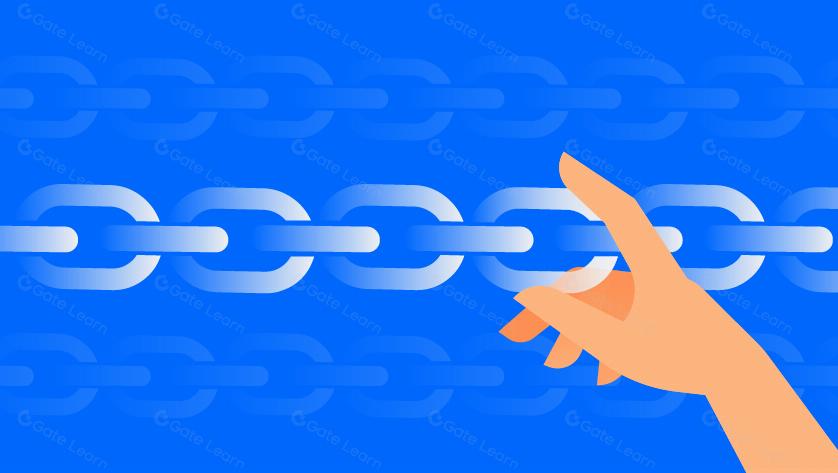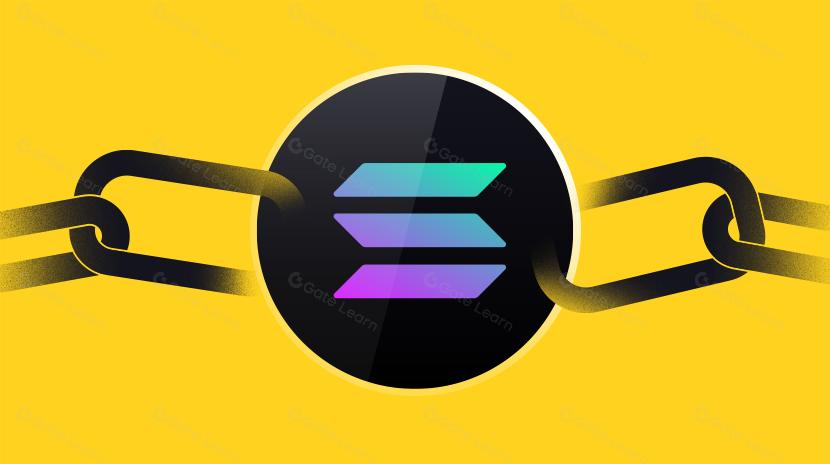Ether Definition

What Is Ethereum?
Ethereum is a public blockchain platform that supports smart contracts, allowing developers to write self-executing contract logic and launch decentralized applications (DApps). Its native token, ETH, is used to pay for transaction and contract execution fees—commonly referred to as gas. ETH also enables staking, which helps secure the network and achieve consensus.
As a "programmable value layer for the internet," Ethereum is more than just a payment system. It offers a flexible runtime environment for applications spanning finance, content, identity, and more, with ongoing upgrades focused on enhancing performance and reducing costs.
What Are the Current Price, Market Cap, and Circulating Supply of Ethereum (ETH)?
As of December 25, 2025, public data sources indicate that Ethereum consistently ranks second by market capitalization among crypto assets, just behind Bitcoin. Over the past year, ETH’s price has fluctuated with market conditions, mainly trading in the $2,000–$4,500 range. Its 24-hour trading volume typically reaches several billion USD, highlighting strong activity (Source: CoinMarketCap, Date: 2025-12-25).
In terms of supply, around 120 million ETH are in circulation. This number is influenced by fee burning and staking mechanisms, resulting in a mildly deflationary or stable supply trend over the last two years (Source: Ultrasound.money, Date: 2025-12-25).
Terminology:
- Market capitalization is calculated as "price × circulating supply" and indicates the asset's scale.
- Circulating supply refers to the amount of tokens currently available for trading.
- Price fluctuates based on market sentiment and macroeconomic factors; for the latest figures, always check Gate or other authoritative sources in real time.
Who Created Ethereum (ETH), and When?
Ethereum was proposed by Vitalik Buterin and others, with its whitepaper published in 2013. The mainnet launched in 2015, marking the arrival of programmable smart contract platforms. Since then, Ethereum has undergone several major upgrades:
- The London Upgrade in 2021 introduced EIP-1559, partially burning base transaction fees to improve fee mechanics and user experience.
- In 2022, "The Merge" transitioned Ethereum to Proof of Stake (PoS), replacing mining with staking to reduce energy consumption.
- The Shanghai/Capella upgrade in 2023 enabled ETH staking withdrawals, increasing staking liquidity.
- The Dencun upgrade in 2024 introduced EIP-4844 (Proto-Danksharding), significantly lowering Layer 2 data costs and driving scalability.
These milestones have propelled Ethereum from an early experiment to a high-performance, sustainable platform.
How Does Ethereum (ETH) Work?
Ethereum operates on the Proof of Stake (PoS) consensus mechanism. Participants stake ETH to become validators who propose and confirm transactions. Honest validators earn block rewards and fee shares, while dishonest actions can result in forfeiture of staked assets.
Smart contracts are on-chain programs that execute automatically when predefined conditions are met—without the need for centralized servers. Executing contracts requires paying gas; gas fees are determined by network load and contract complexity. Under EIP-1559, a portion of these fees is burned, helping offset new issuance.
The Ethereum Virtual Machine (EVM) serves as the execution environment for smart contracts. Developers code contracts using languages like Solidity, which the EVM then runs. To boost throughput and reduce costs, Ethereum employs Layer 2 scaling solutions—such as rollups—that process computation and data off-chain before submitting results to the main chain for security.
What Can You Do With Ethereum (ETH)?
Ethereum enables users and developers to participate in diverse use cases:
- Decentralized Finance (DeFi): Exchange tokens, provide liquidity, or access lending protocols without intermediaries. For example, users can collateralize ETH to mint stablecoins or engage in yield strategies.
- NFTs & Creator Economy: Digital art, game assets, and membership passes can be minted as NFTs; creators set royalties and trade on secondary markets.
- Gaming & Identity: On-chain assets move freely across apps; identity credentials support access control and reward systems.
- DAO Governance: Communities use token voting to direct project development and fund allocation, fostering transparent collaboration.
These applications leverage smart contracts and open standards to lower barriers to entry and increase composability.
What Wallets and Scaling Solutions Exist in the Ethereum (ETH) Ecosystem?
Popular wallets include browser extensions and mobile wallets such as MetaMask and Rabbi, which connect to DApps and manage ETH/tokens. Hardware wallets provide offline private key storage for enhanced security. Block explorers like Etherscan let users query transactions, contracts, and addresses.
For scaling, leading Layer 2 solutions include Arbitrum, Optimism, and zero-knowledge rollups like zkSync and Starknet. These process large volumes of transactions off-chain before submitting proofs or data to the mainnet, dramatically reducing fees and boosting speed while maintaining security.
When choosing tools, always download from official sources to avoid counterfeit plugins and enable multi-layer security settings.
What Are the Main Risks and Regulatory Considerations for Ethereum (ETH)?
Price Volatility: Crypto assets are highly sensitive to market sentiment and macro trends; short-term price swings can be significant.
Smart Contract & Protocol Risk: Bugs or exploits in contracts may cause loss of funds. Always choose audited, well-established protocols and diversify risk exposure.
Private Key & Wallet Security: If private keys are leaked or seed phrases lost, assets can be irreversibly stolen or unrecoverable. Use offline backups, avoid plaintext storage, and enable multi-factor authentication.
Network Congestion & Fees: During peak periods, gas fees rise—impacting transaction speed and cost. Consider Layer 2 solutions or transact during off-peak times.
Regulatory Uncertainty: Policies on crypto assets vary across jurisdictions, affecting compliance, taxation, and usability. Always follow local laws for trading and reporting.
Staking & Liquidity Risk: Staking ETH for PoS yields rewards but may involve lockup constraints. Consider withdrawal cycles and platform reputation; avoid concentrating all funds in one place.
How Can I Buy and Securely Store Ethereum (ETH) on Gate?
Step 1: Registration & Security Settings Go to Gate’s official website to create an account. Complete email or phone verification, enable two-factor authentication (2FA), set a strong password, and configure withdrawal whitelists.
Step 2: Identity Verification & Funding Follow the prompts for KYC verification. Deposit fiat via supported channels or purchase USDT first to prepare for trading.
Step 3: Buy ETH On the trading page, search for the “ETH/USDT” pair. Choose a limit or market order, confirm quantity/price, then submit your order. Assets will appear in your account after completion.
Step 4: Withdraw to Self-Custody Wallet (Optional) If you prefer self-custody, copy your wallet address and initiate withdrawal from Gate. Test with a small amount first before transferring larger sums. Be sure to select “Ethereum (ERC-20)” as the network and keep some ETH for future gas fees.
Step 5: Secure Storage & Risk Management Backup your seed phrase offline—never screenshot or store it on cloud drives. Periodically review DApp authorizations and revoke unnecessary contract permissions. Use hardware wallets for large holdings; keep daily funds in wallets or Gate accounts with high security settings.
What Are the Key Differences Between Ethereum (ETH) and Bitcoin?
Purpose: Bitcoin is primarily designed for value storage and peer-to-peer payments; Ethereum serves as a smart contract platform focused on programmability and application ecosystems.
Consensus Mechanism: Bitcoin uses Proof of Work (PoW), relying on mining power; Ethereum utilizes Proof of Stake (PoS), where validators stake ETH—resulting in lower energy consumption.
Supply Model: Bitcoin’s total supply is capped at 21 million coins; Ethereum has no fixed limit but EIP-1559 burns some transaction fees. Coupled with staking dynamics, ETH supply has been mildly deflationary or stable in recent years.
Scalability Approach: Bitcoin expands payment capabilities via second-layer solutions like Lightning Network; Ethereum scales mainly through rollup-based Layer 2s—enhancing throughput and lowering costs for diverse applications.
Ecosystem & Development: Ethereum’s EVM and contract languages support a wide range of DApps and standards (such as ERC-20, ERC-721). Bitcoin’s scripting is conservative—offering mature security/stability but less flexibility at the application layer. Both networks complement each other within their respective domains.
Summary of Ethereum (ETH)
Ethereum provides foundational infrastructure for smart contracts and decentralized applications. ETH serves both as network fuel and a consensus asset. With upgrades like EIP-1559, The Merge, and Dencun delivering ongoing improvements in cost efficiency and performance—and Layer 2 scaling driving broader adoption—Ethereum remains at the forefront of Web3 innovation. For newcomers, start by understanding gas, wallets, and private keys; then make small staged purchases on Gate with robust security settings for a safe entry point. Stay updated on Ethereum’s roadmap and regulatory developments; adapt your portfolio and use cases according to personal risk tolerance and application needs.
FAQ
What Is the Abbreviation for Ethereum?
Ethereum's abbreviation is ETH—the standard code used across major exchanges and block explorers. ETH represents both the blockchain network itself and its native cryptocurrency. When buying, transferring, or staking Ethereum, you'll see the symbol ETH.
Where Should Beginners Start Learning About Ethereum?
Start by understanding Ethereum’s three core features: it’s a programmable blockchain, supports smart contracts, and enables building all types of decentralized applications. Beginners can begin by learning about wallets—create an account on Gate and try making small purchases of ETH to gain hands-on experience quickly.
Why Is Ethereum Called "The World Computer"?
Ethereum isn’t just a payment tool—it acts as a global shared computer where anyone can write and run smart contracts. These contracts automatically execute complex financial logic, issue tokens, run games—just like deploying apps on a distributed network.
What Are the Ideal Use Cases for Ethereum vs Bitcoin?
Bitcoin is positioned as "digital gold," best suited for value storage and transfers. Ethereum offers greater flexibility—supporting lending, trading, NFTs, gaming, and other complex application scenarios. Choose Bitcoin if you want straightforward value storage; choose Ethereum if you want to explore DeFi or other innovative applications.
Why Do Ethereum Transaction Fees Fluctuate?
Ethereum’s transaction fees (gas fees) depend on network congestion—fees rise when transaction volume is high; they fall during quieter periods. This is similar to traffic tolls: prices go up at rush hour but drop during off-peak times. To save costs, consider transacting outside peak periods.
Quick Reference: Key Terms Related to Ethereum (ETH)
- Smart Contract: Self-executing code running on Ethereum that fulfills preset conditions without intermediaries.
- Gas: The unit of computational cost required for executing transactions or smart contracts on Ethereum.
- Staking: Locking up ETH to participate in network validation—earning rewards while securing the network.
- Virtual Machine (EVM): The execution environment responsible for running smart contract code consistently across Ethereum.
- DeFi: Decentralized financial applications offering lending, trading, derivatives services on Ethereum.
- Layer 2: Scalability solutions built atop Ethereum that increase transaction speed while reducing costs.
Further Reading & Resources on Ethereum (ETH)
-
Official Website / Whitepaper:
-
Developer Docs:
-
Research & Media:
Related Articles

The Future of Cross-Chain Bridges: Full-Chain Interoperability Becomes Inevitable, Liquidity Bridges Will Decline

Solana Need L2s And Appchains?
